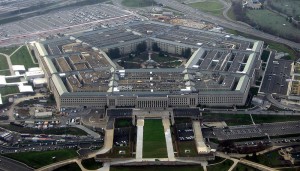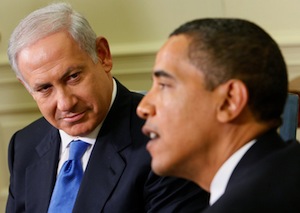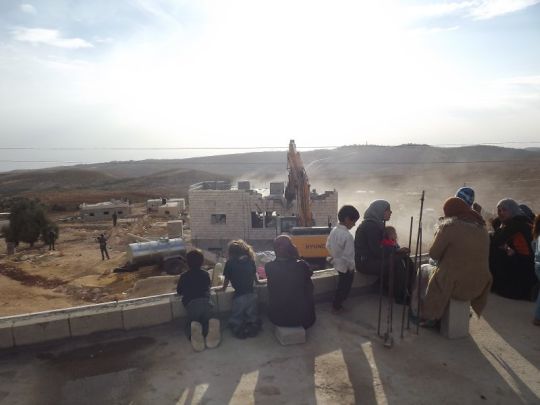It seems very odd to me that this CNN reporter Pentagon spokesperson can say with a straight face that Iran fired unprovoked. Just imagine how Washington would respond to Iranian drones flying over US airspace.
Month: November 2012
The Economic Costs of ‘a Permanent War Economy’
Probably the most dominant rhetorical pitch thrown about by politicians and media pundits regarding defense cuts is that they will cost the country much-needed jobs. Actually, the number of jobs in the military industrial complex that would be lost as a result of the puny defense cuts proposed in the sequestration deal is very low compared to the dooms-day predictions.
 Of course, the other piece of the story is that government spending on the military should not be a jobs program, first and foremost because there are other menacing problems with permanent war and “a permanent war economy.”
Of course, the other piece of the story is that government spending on the military should not be a jobs program, first and foremost because there are other menacing problems with permanent war and “a permanent war economy.”
That’s the subject of a new paper from Thomas K. Duncan and Christopher J. Coyne, economists at George Mason University. Here is the abstract:
How does the permanent war economy interact, and subsume, the private, non-military economy? Can the two remain at a distance while sharing resource pools? This paper argues that they cannot. Once the U.S. embarked upon the path of permanent war, starting with World War II, the result was a permanent war economy. The permanent war economy continuously draws resources into the military sector at the expense of the private economy, even in times of peace. We explore the overlooked costs of this process. The permanent war economy does not just transfer resources from the private economy, but also distorts and undermines the market process which is ultimately responsible for improvements in standards of living.
The paper is introduced with a quote from Eisenhower’s farewell address where he coined the phrase military industrial complex. “In the councils of government, we must guard against the acquisition of unwarranted influence, whether sought or unsought, by the military-industrial complex. The potential for the disastrous rise of misplaced power exists and will persist.”
Duncan and Coyne “try to show how the military-industrial complex has turned into what some in the Pentagon call a ‘self-licking ice cream cone’ more concerned with self-preservation than national security,” according to Time.
They explore how at this point rising military budgets has become self-perpetuating and based on things like jobs, as opposed to estimates on how much spending the US actually would need to defend itself.
“As the military-industrial complex lacks a mechanism for meaningful economic feedback and correction,” they write, “once the economic activity has been set in motion, there is no true method of correction. This leads to the second implication, which is that the permanent war economy is self-extending.”
Netanyahu Sought to Provoke Iran War, Drag in US, in 2010
In 2010, Israeli Prime Minister Benjamin Netanyahu aimed to provoke Iran into a war with Israel that would eventually drag in the United States. Yossi Melman at Al-Monitor:
The truth is that Netanyahu and Barak did not order the military to plan a direct, all-out attack on Iran. Their true intention was to trigger a chain of events which would create tension and provoke Iran, and eventually could have led to a war that might drag in the United States.
 Laura Rosen acknowledges recent reporting that “Netanyahu was not planning to launch an all-out attack on Iran in 2010,” but rather to provoke Iran into striking first.
Laura Rosen acknowledges recent reporting that “Netanyahu was not planning to launch an all-out attack on Iran in 2010,” but rather to provoke Iran into striking first.
Think about the context of this. Netanyahu and Barak so desperately craved war that they sought to harass and threaten Iran in order to appear a credible and imminent enough threat that Iran would strike preemptively, despite being a much weaker power. And the US – Israel’s one major ally, their primary source of economic and military aid, the only reason the international community hasn’t forced them to stop committing crimes against the Palestinians – was to get dragged into this long and discretionary war.
American taxpayers are giving up $3 billion dollars a year, plus a poisoned political system where submissive deference to Israel is all but mandatory, to a country that literally planned to get thousands of our soldiers killed, hundreds of billions of our dollars wasted, and to destabilize the entire Middle East.
Melman continues:
One such scary scenario was the possibility that Iranian intelligence could have noticed the Israeli military preparations and decided to stage a pre-emptive strike against Israel or US targets in the region. Israel, in such a situation, would have claimed that it was a victim of Iranian aggression and retaliated. America, too, could have found itself caught up in an unpredictable circle of violence.
Sources who were privy to the secret deliberations told me that Ashkenazi and Dagan eventually managed to convince the security cabinet and then the full cabinet, which are the only authorized bodies to decide on war and other vital issues, that Netanyahu and Barak were playing with fire and may not only ignite a regional war in the Middle East, but also ruin decades of close, intimate strategic cooperation with the US.
Imagine the outrage, the indignation, if it were publicly revealed that the leadership in any other country in the world did this to the United States. Can you even imagine any plausible scenario where aid and support would continue?
By the way, we’ve seen this kind of thinking before right here in the United States. In September, Patrick Clawson of the Washington Institute for Near East Policy caught a lot of attention when he suggested the United States should provoke Iran into starting a war. These examples should illustrate just how (un)necessary a war with Iran is, given that Iran seemingly refuses to be the one to start it.
Obama Bombs Yemen Hours After Winning Reelection
Not even a full day had passed before newly reelected President Obama ordered another drone strike in Yemen.
A U.S. drone strike targeted a group of al-Qaida militants on the outskirts of the Yemeni capital Sanaa on Wednesday night, killing at least three terrorists, government officials said.
A White House spokesman did not respond to a request for comment. If it were a American strike, of course, it would have to have been authorized by Obama.
The drone war violates both domestic and international law, and the Obama administration’s vehement disdain for transparency in government is the only thing keeping it from public and legal scrutiny. Beyond the law, it’s terrorism.
Who Is Not So Happy About Obama’s Win?
Many are excited today about President Obama’s reelection. But not everybody. Israeli Prime Minister Benjamin Netanyahu ain’t so happy, according to Haaretz: “The prime minister won’t soon forget the night of November 6. It started with the election of his ex-bureau chief and current bitter rival as head of Habayit Hayehudi, and continued with the defeat of his friend Mitt Romney.”
The chilly and murky relationship between the current and next president [Obama] and the current prime minister [Netanyahu] – who is also very likely to be the next prime minister – is well-known. Netanyahu gambled on Romney. Netanyahu’s bet did not come in. Netanyahu will pay the price. How high will the cost be? How painful will it be? Obama will decide, at the time and place of his choosing. If he decides to meddle in our election campaign in some fashion, no one could blame him. Bibi started it.
But this doesn’t exactly mean Bibi’s right-wing, expansionist agenda aiming to deny Palestinians their rights is at all threatened. Indeed, there are some other people the day after Obama’s victory who are not so happy. From the +972 blog:
As America celebrated the re-election of Barack Obama, it was business as usual in Israeli-controlled Area C of the West Bank. At least two Palestinian homes were demolished today. The residents’ ‘crime?’ They didn’t have building permits, which are issued by Israel and are next to impossible for Palestinians to obtain.

Whatever the disagreements between Obama and Netanyahu on when to bomb Iran or what constitutes a settlement freeze, the fact is that while US support for Israel has continued and even increased under Obama, the illegal settler population has ballooned under Netanyahu and the systematic abuse of Palestinian rights has persisted – with the help of and because of US support. Palestinians rightly don’t have lots of confidence in Obama’s second term.
As of October 25, Israel had destroyed 138 Palestinian houses in East Jerusalem and the West Bank in 2012 alone, according to the United Nations’ Displacement Working Group. Up to 690 Palestinians were displaced due to the demolitions; more than half of them are children. In 2011, that number reached 1,094.



